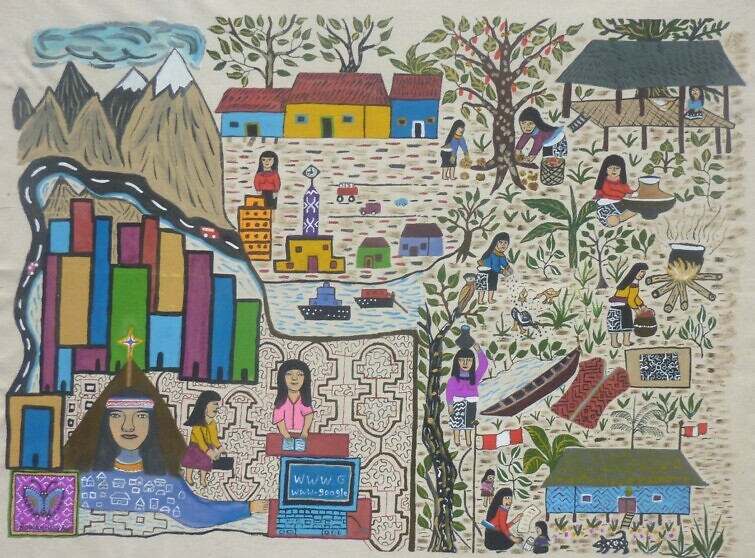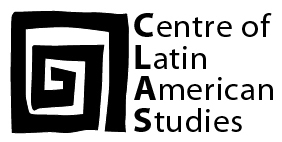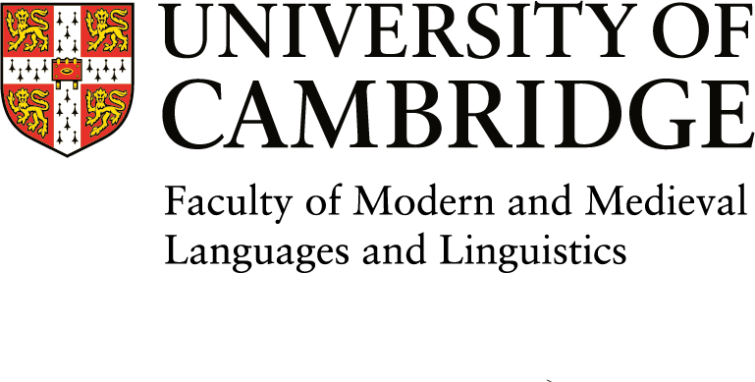| 9 May 2024 | All day | SG1, Alison Richard Building, 7 West Road, Cambridge, CB3 9DP | |
- Description
- Programme
- Speaker biographies
Description
Convenor
Maite Conde (University of Cambridge)
Speakers
- Danilo Baraúna (São Paulo State University / São Paulo Research Foundation)
- Priscilla Brasil (University of Coimbra/Companhia Amazônica de Filmes)
- Giuliana Borea Newcastle University)
- Martina Broner (Dartmouth College)
- Christian Fischgold (EHESS-Escole des hautes études en sciences sociales)
- Jamille Pinheiro Dias (University of London)
- Gustavo Procopio Furtado (Duke University)
Screenings
Itsuni Ügüno – Jungle Fever
(Documentary, Dir. Takumã Kuikuro, Brazil 2022, 10 min., Itsuni Ügüno with English subtitles)
Itsuni Ügüno documents the struggle of the Amazonian Xingu people who are trying to save their habitat from the fires, to protect their ecosystem and the many rare species that live in the rainforest.
Lithipokoroda
(Experimental, Dir. Lilly Baniwa, Brazil 2021, 28 min., Baniwa and Tukano with English subtitles)
Lithipokoroda is an Indigenous performance manifesto from São Gabriel da Cachoeira in the Amazon. It portrays an ancestral woman walking from the forest to the maloca, while white men destroy the forest. Despite this destruction, ancestral knowledge lives on. Young Indigenous people use technology to denounce violence and defend their culture, demanding an end to genocide, violence, and discrimination.
Ka’a Zar Ukyze Wà – Forest Keepers in Danger
(Documentary, Dir. Flay Guajajara, Edivan Guajajara, and Erisvan Guajajara. Brazil 2022, 14 min, Guajajara and Portuguese with English subtitles)
Indigenous filmmakers from the cooperative Mídia Indígena alert to the grave situation faced by their uncontacted relatives the Awá Guajá, from the Araribóia indigenous territory, one of the most endangered in the Amazon.
Bakish Rao: Plant Resistance
(Sci-fi, Dirs. Denilson Baniwa and Comando Matico. Brazil. 2024. 16 mins. Portuguese with English subtitles)
Bakish Rao: Plant Resistance is a sci-fi short film by Amazonian Indigenous artists Denilson Baniwa and Comando Matico that speculates on plantations and the future of planet Earth from the perspective of plants. As a collaborative experiment bringing together artistic languages, scientific debates, and Indigenous cosmologies, the film proposes a multispecies speculation to address forms of resistance to the oil palm monoculture and ecological homogenization more broadly.

© Elena Valera-Bahuan Jisbë, Women Shipibo Migrants in Cantagallo, 2010/ Amazonart Project.
Summary
This one-day symposium explores the relationship between film, art, and activism in the Amazon. Along with in-person discussions by international speakers, the programme includes a number of contemporary Amazonian films made by Indigenous creators who are using film to amplify their voices and contest historical marginalisation.
Central to this event is a discussion of the concept of ‘territory.’ Recognizing the historical role of territorial mapmaking and cartography in colonial projects, the various speakers will explore the distinct ways in which indigenous filmmakers and artists offer alternative perspectives on the concept of territory, as well as practices of counter-mapping that intervene in and invert power relationships in the Amazon. Together the talks and screenings will explore the dynamic relationship between cinema, counter-cartographies, and diverse ontological perspectives in the Amazon region.
If you have specific accessibility needs for this event please get in touch. We will do our best to accommodate any requests.
Supported by:



Programme
| 9:30 - 9:45 | Welcome and opening remarks Maite Conde (University of Cambridge) |
| 9:45 - 10:30 | Keynote ‘Mapping ontologies of cinema in the Amazon’ |
| 10:30 | Discussion and Q and A with Furtado |
| 11:00 – 12:45 | Panel 1 |
| 11:00 - 11:20 | ‘No more history without us: the role of cinema in Amazonian resistances’ |
| 11:20 - 11:40 | ‘Political and aesthetic possibilities of indigenous cinema in Brazil’ |
| 11:40 – 12:00 | ‘Indigenous counter-cartographies and visual activism in the Amazon’ |
| 12:00 – 12:15 | Response by Thea Pitman |
| 12:15 – 12:45 | Q and A discussion |
| 12:45 – 13:45 | Lunch |
| 14:00 -15:45 | Panel 2 |
| 14:00 - 14:20 | ‘Place-making, world-making in Peru’s Amazonian indigenous contemporary art’ |
| 14:20 - 14:40 | ‘Framing Amazonian territories: plants, collectivity, and cinema’ |
| 14:40 - 15:00 | ‘Haunted aiesthesis in the queer and trans artists’ moving image from the Amazon’ |
| 15:00 - 15:15 | Response by Maite Conde |
| 15:15 - 15:30 | Q and A discussion |
| 15:30 - 16:00 | Tea and coffee break |
| 16:00 - 17:15 | Film Screenings (Room S1)
|
| 17:15 - 18:00 | Roundtable discussion of screenings With Gustavo Furtado, Jamille Pinheiro Dias and Maite Conde |
Speaker biographies
Danilo Baraúna is a researcher, independent curator and visual artist. He was born in Belém (Brazilian Amazon) and is currently a FAPESP (São Paulo Research Foundation) Postdoctoral Research Fellow at São Paulo State University (UNESP). His research interests intersect the fields of artists’ moving image and queer studies (particularly the affective, decolonial and ecological approaches). He is currently conducting research on queer ecologies and the LGBTQIAPN+ artists’ moving image from the Brazilian Amazon. Danilo has also worked as a CAPES (Brazilian Ministry of Education) Postdoctoral Research Fellow at the Federal University of Pará (UFPA) and holds a PhD in Fine Art from The Glasgow School of Art (UK), fully funded by CAPES Foundation. Danilo has published articles in academic journals such as FRAMES Cinema Journal, Visualidades, Agenda Política, TECCOGS: Digital Journal of Cognitive Technologies, and has curated artists’ moving image screenings and festivals in Brazil, UK and Argentina.
Giuliana Borea is a Lecturer in Latin American Studies at Newcastle University, and an Affiliated Lecturer in Anthropology at the Pontificia Universidad Católica del Perú. Her research concerns the political economy of contemporary art; museum politics and practices; place-making and sensory knowledge with a focus on Peru and the Amazon. Her current Amazonart project explores the global circulation of Amazonian art and offers new curatorial narratives through a collaborative approach. She has been Peru’s Director of Museums and Cultural Heritage, Coordinator of the Lima Contemporary Art Museum, and curator of several exhibitions. She is the editor of Arte y Antropología: Estudios, Encuentros y Nuevos Horizontes (PUCP 2017), co-editor of Antropologías Visuales Latinoamericanas (FLACSO/PUCP, in press) and the author of Configuring the New Lima Art Scene: An Anthropological Analysis of Contemporary Art in Latin America (Routledge, 2021).
Priscilla Brasil is an Amazonian filmmaker and executive producer. Born in Belém, Brazil, in 1978, she is currently pursuing a PhD in Post-Colonialism and Global Citizenship at the University of Coimbra in Portugal. Her filmmaking journey took flight with the acclaimed feature documentary “As Filhas da Chiquita” in 2006. Subsequently, her works like “Serra Pelada – Esperança não é sonho” and “Terra de Negro” garnered critical acclaim and awards. In the 2010s, she directed music videos for various Amazonian artists and produced “Brega S/A,” a documentary on the Amazonian musical genre known as “tecnobrega”. Her collaboration with singer Gaby Amarantos led to significant achievements, including Artist of the Year at Brazilian MTV and a Latin Grammy nomination. Recently, Priscilla returned to documentary filmmaking, with notable projects such as “100 anos de payxão” and “Amazonia Ocupada.” One of her latest works, “Into the Void of Air” (2022), focuses on Amazonian pilots. She is currently working on a documentary about the Brazilian community in Florida, USA.
Martina Broner
Spanning 21st century film, photography, and digital audiovisual media, Martina Broner’s research sits at the intersection of Latin American cinema & media studies and the environmental humanities. Her book project, Forest Formats: Media and Environment in the Amazon, examines new media formats that emerge from entanglements between human and other living entities, such as trees and rivers, in the transnational Amazon rainforest. She earned MFAs from Columbia University (Film) and New York University (Creative Writing in Spanish) and completed a PhD in Romance Studies at Cornell University. Before joining the Department of Spanish and Portuguese at Dartmouth as assistant professor, she was a Mellon Postdoctoral Fellow in the Departments of Film & Media Studies and Latin American, Latino, and Caribbean Studies. Broner, who was recently an invited visiting assistant professor at Yale University, co-founded the Amazonia Section of the Latin American Studies Association.
Maite Conde is Professor of Brazilian Studies and Visual Culture at the University of Cambridge. Her work focuses on twentieth century cinema and culture in Brazil She is the author of Consuming Visions. Cinema, Writing and Modernity in Rio de Janeiro (Virginia University Press, 2012) and Foundational Films. Early Cinema and Modernity in Brazil (University of California Press, 2018). In addition to her work in film, Maite also maintains an interest in Latin American social and cultural theory, and a particular interest in bringing Brazilian scholars into the Anglo American field. To this extent, she edited, translated and wrote the introduction to Between Conformity and Resistance(Palgrave Macmillan, 2011), a collection of key essays by renowned Brazilian philosopher Marilena Chauí. She also edited volume of essays by Brazilian film scholar Paulo Emílio Salles Gomes, Paulo Emílio Salles Gomes: On Brazil and Global Cinema (University of Wales Press, 2018) and recently edited the book Manifesting Democracy? Urban Protest and the Politics of Representation in Brazil Post 2013 brings together Brazilian scholars and activists to examine the Brazilian protests of 2013 and their aftermath.
Christian Fischgold holds a PhD in Comparative Literature (Brazil – Africa). He is currently, MSCA École des Hautes Études en Sciences Sociales (Paris) Dr Fischgold researches the relationships between literature, anthropology, and cinema, emphasising interdisciplinary relationships between aesthetics and politics and contemporary identity reconfigurations. He has also developed experimental film projects, collaborated in collective volumes, and published articles in several academic journals. He was the creator and curator of the 1st Brazil Indigenous Film Festival, held at the Institute of Contemporary Arts in London in 2021, and also organised Arandu: ouvir o tempo – RAI Film Festival at Royal Anthropological Institute, Bristol in 2023, Demarcação da Telas e Revolução das Imagens, at the Instituto Moreira Sales, São Paulo in 2023, e Mostra de filmes e culturas indígenas at Museu do Pontal, Rio de Janeiro 2023. Christian was previously a lecturer at Universidade Internacional do Cuanza, Angola (2022-23) and was also a GCRF Visiting Researcher at the University of Manchester School of Arts, Languages, and Cultures (2020-21 UK), undertaking work on indigenous filmmakers in Brazil. He holds a post-doctorate in Theory and Literary History at the Institute of Language Studies (IEL Unicamp, Brazil, 2019), which focused on Brazilian Cultural Anthropophagy and Angolan Cultural Neo-animism.
Thea Pitman is Professor of Latin American Studies in the School of Languages, Cultures and Societies at the University of Leeds. Her research over the last 20 years has focused on on Latin/x American digital cultural production, from electronic literature and net art to community websites and computer games. She is co-editor of the anthology Latin American Cyberculture and Cyberliterature (LUP, 2007), as well as co-author of the monograph Latin American Identity in Online Cultural Production (Routledge, 2013). Her more recent work focuses on Indigenous appropriations of new media technologies, and includes the monograph Decolonising the Museum: The Curation of Indigenous Contemporary Art in Brazil(Tamesis, 2021), as well as the AIAI: Artificial Intelligence, Art and Indigeneity project (2023–) which focuses on Indigenous representation and self-expression with generative AI tools.
Gustavo Procopio Furtado is associate professor of Romance Studies and of Art Art History & Visual Studies at Duke University. He is also a co-director of Duke’s Amazon Lab, a space that fosters interdisciplinary and intercultural conversations about the Amazon. His work focuses on Latin American audiovisual production with attention to experimental and documentary cinema; ethnographic and indigenous film and video; media and the environment; and questions related to intermediality and media theory. His book Documentary FIlmmaking in Contemporary Brazil: Cinematic Archives of the Present (2019) won the Antonio Candido Prize for Best Book in the Humanities, awarded by the Brazil-section of the Latin American Studies Association.
Jamille Pinheiro Dias was born in Belém, in the Brazilian Amazon, in 1983. She is currently the director of the Centre for Latin American and Caribbean Studies at University of London’s School of Advanced Study, where she also works as a Lecturer. She was previously a von der Heyden Fellow at the Franklin Humanities Institute’s Amazon Lab at Duke University and a Research Associate at the University of Manchester as part of the project Cultures of Anti-Racism in Latin America, funded by the Arts and Humanities Research Council. Her studies involve environmental issues, Amazonian cultural production, Indigenous arts, and translation studies in Latin America, with a focus on Brazil. Prior to working in the UK, she was a postdoctoral fellow at the Department of Modern Languages at the University of São Paulo, where she also received a Ph.D. in Modern Languages.



